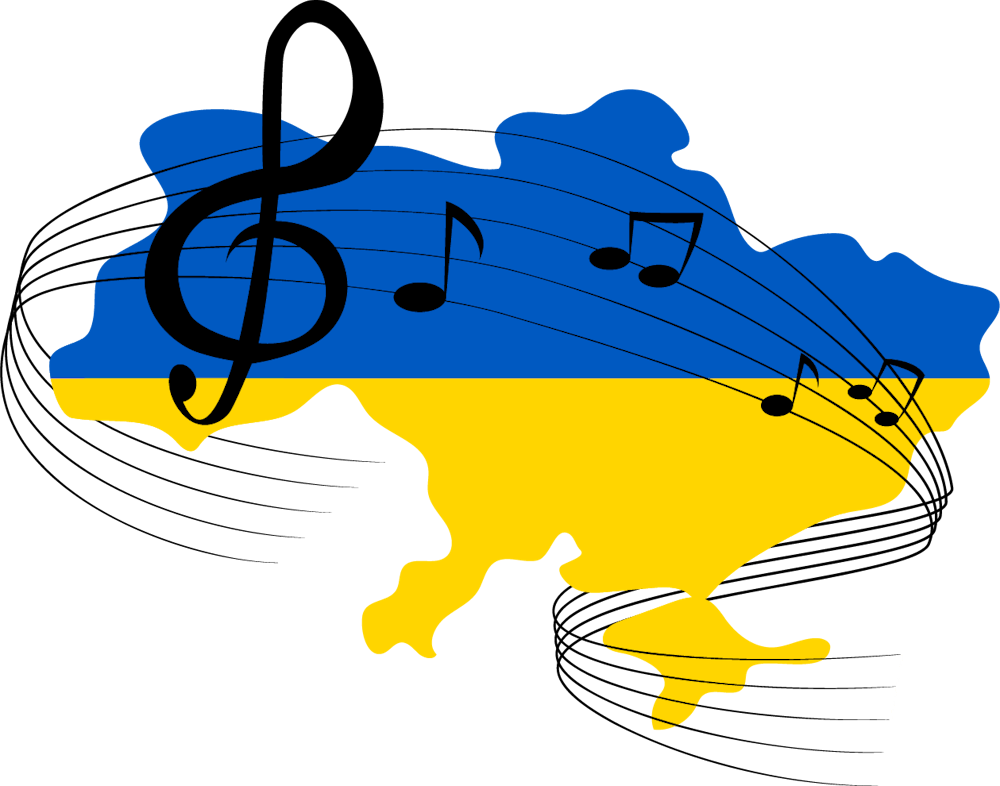Ukrainian culture, specifically its music, has been a target of Soviet oppression for practically a century. As early as the 1930s, Stalin attempted to eradicate any semblance of state–building aspirations or a Ukrainian national culture. This included a massacre of the kobzari, the itinerant, bandura–playing musicians who were mainstays of Ukraine’s unique and vibrant folk tradition. The Soviet Union went so far as to mandate the registration of musical instruments and ban nomadic musical performances.
Despite having a legacy of ideological and cultural extermination dating back generations, many Ukrainians are determined to preserve their distinct cultural legacy. A musical revival of Ukrainian folklore and the current cultural boycott of Russia demonstrates the power of music and the resiliency of the Ukrainian people. The resurgence of Ukrainian folk music and its integration into modern society is a living testament to the existence of an unmistakable Ukrainian culture, discrediting the very foundation of Putin’s justifications for the invasion.
Since the Maidan revolution and annexation of Crimea in 2014, folk music and the Ukrainian language itself have been experiencing a major revival, transforming decades–old art into a modern statement. These events prompted many Ukrainian musicians to reach into their history and combine modern styles with lyrics and instruments inspired by the past independence from Russia. Groups such as DakhaBrakha, ONUKA, and KAZKA use ancient folk instruments unique to Ukraine such as the bandura. They source them from local artisans who have learned their trade from generations before them, ensuring their music is constructed from Ukrainian legacy and memory. Their music often incorporates the style of a variety of Ukrainian ethnic groups in order to “raise Ukranians’ self–identification and self–esteem,” according to one of the members of DakhaBrakha, who have been ending their shows with chants of “Free Ukraine!” and “No War!” since 2014. They hope their music will inspire and evoke action in other Ukrainian citizens to attain freedom from Russian interference.
Ukraine’s 2016 entry for the Eurovision Song Contest, an international songwriting competition broadcast throughout Europe, highlighted the country's history. Jamala’s “1944” detailed the abuses suffered under Stalin in Crimea, 70 years before the peninsula was annexed by Putin, and was the first Eurovision song to contain lyrics in the Crimean language. This was the same year Ukraine passed a law mandating that at least 35% of music on the radio must be in the Ukrainian language, committing itself to reviving a waning national identity and never again suffering abuses at the hands of Russia in silence.
Though the foundations of their music may be archaic, modern Ukrainian musicians are also making a concerted effort to bring folk into the modern age through integrating styles such as electropop, rap, and hip–hop. Ukrainian rapper and former kindergarten teacher Alyona Savranenko, who goes by Alyona Alyona, promotes agency and self–esteem for both Ukraine’s women and the country as a whole. The video for her breakthrough hit “Rybki,” meaning “little fish” in Ukrainian, went viral in 2018. Although she took inspiration from Western influences like Eminem while her friends “were talking in Russian” when she began her career, Savranenko made sure to claim the music for her culture by being unafraid to write in her native language. Her music speaks of “normal Ukrainian people and young people,” encapsulating the country’s distinct culture in each song and encouraging its citizens to consume media and utilize language representative of their identity.
Today, Ukrainian musicians are advancing the efforts to reclaim their culture by coming together in a cultural boycott of Russia. One of Putin’s major justifications for the invasion into Ukraine is his claim that “modern Ukraine was entirely created by Russia.” Though history itself is enough to prove this claim false, Ukrainian musicians are determined to show they can exist, or rather thrive, without any association with the Russian identity. They are coming together to boycott performing in Russia, promote writing songs in Ukrainian rather than Russian, and reject using Russian national symbols in favor of promoting their own heritage. By eliminating the Russian cultural influence, they prove that Ukraine does not rely on Russia for its foundations.
Outside of Ukraine, the world is following suit in the cultural boycott of Russia. The Cannes Film Festival and BBC are among the latest to employ culture as a way of condemning Russia for its actions. They are joined by a host of artists, including Imagine Dragons, Louis Tomlinson, Green Day, YUNGBLUD, and AJR, who have canceled tour stops in Russia.
Regardless of what is happening in the trenches, Ukraine consistently projects strength through its efforts to claim the country’s national identity and display it proudly to the world. While the government and military are protecting the country against violence, Ukrainian musicians are taking up the equally important work of ideologically undermining Putin’s justifications for war. Rejecting the Russian influence in favor of blending their folk history with modern influences in music is tangible proof that Ukraine has a solid, independent character that no amount of violence or intimidation can erase.







